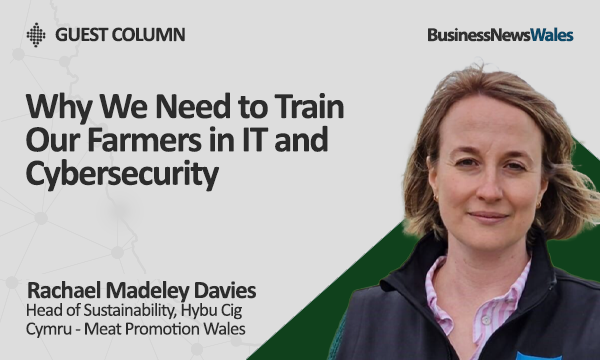
GUEST COLUMN:
Pete Burnap
Director
Cyber Innovation Hub
We are witnessing a global seismic shift in how farms operate digitally. Today, a farm is as much becoming a data hub as it is an agricultural endeavour.
We're talking about a vast array of information, from crop yields and soil health metrics to livestock health records and machinery usage data. This data drives decisions that affect the very heart of farming operations, making cybersecurity a foundational component of modern agricultural practices.
The types and volumes of data managed on farms today can be staggering. Consider the data needed for optimal crop management or the detailed health records kept for each animal in a herd. Then there’s the soil and grass data essential for pasture management. All of this information is crucial for making informed decisions that enhance productivity and sustainability. With the increasing reliance on digital tools and automated systems, such as drones for field monitoring and automated feeders for livestock, the potential cybersecurity risks multiply. Each piece of data, each connected device, is a potential entry point for cyber threats.
For farmers, the challenge is twofold. First, the implementation of cybersecurity measures must contend with the pressing demands of farm management. There's always something immediate that needs attention, often leaving little time for what might seem like abstract digital threats.
Second, there is the issue of accessibility and usability of cybersecurity solutions. These solutions need to be user-friendly and integrated seamlessly into daily operations without disrupting the farm workflow.
To address these challenges, we need a proactive approach to cybersecurity in the agricultural sector. This involves not only regular training tailored to the agricultural context but also the development of straightforward, robust cybersecurity practices that can be easily adopted by farmers.
The resilience of our food systems increasingly hinges on the security of our data. A breach in farm data integrity can have far-reaching consequences, from compromised animal welfare and crop failures to financial losses and undermined consumer confidence. It's clear that as the agricultural sector continues to evolve, so too must our strategies for protecting its digital infrastructure.
For farmers today, becoming cyber-savvy is not just about protecting data, it's about safeguarding the future of farming itself.
If you’d like to know more about getting your team skilled in cyber, take a look at Cyber Innovation Hub’s short, hands on upskilling courses, and if you would like to know more about immersive testing of your networks and devices, check out the Cyber Innovation Hub testbed facilities






